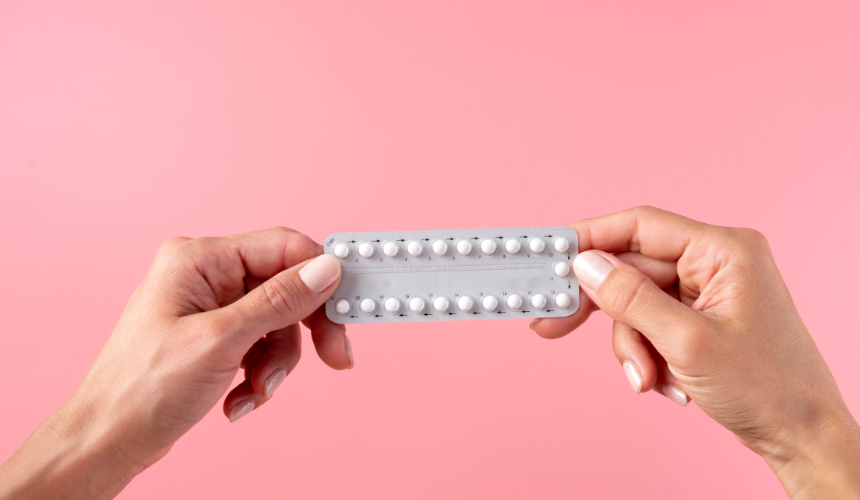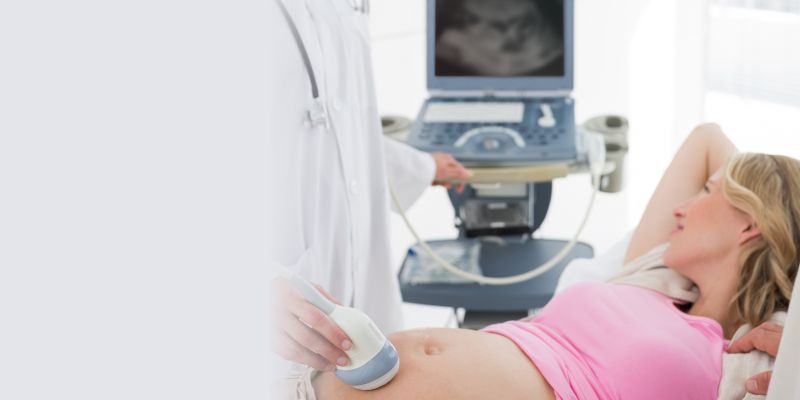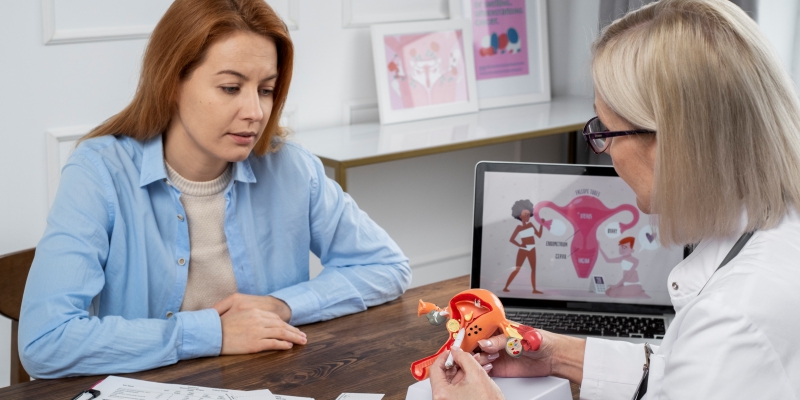
Side Effects of Contraceptive Pills

Author: Dr. Pratima Thamke MBBS, MRCOG, MD
Consultant - Obstetrician & Gynaecologist at Motherhood Hospital Kharghar
Birth control has been a practice among mankind for centuries. However, reliable birth control has been available only for about 100 years and continues to be evolving even today. As of 2023, there are multiple ways to avoid unwanted/unplanned pregnancies such as barrier methods, hormonal methods, long-acting reversible contraceptives, and sterilisation. The most popular and effective forms of birth control are condoms and emergency contraceptive pills.
What are Contraceptive Pills?
Contraceptive pills or birth control pills are hormone medicines to prevent pregnancy. The hormones in these pills work to stop ovulation, i.e. releasing the egg from the ovary. Some types of contraceptives also alter the uterine lining, making it less likely for the egg to be fertilised.
These pills come in a pack (28 days for each month) and are to be taken daily. It is the most commonly prescribed form of contraception in the United States with a success rate of 91%.
Types of Contraceptive Pills
There are majorly three types of contraceptive pills:
1. Combination pills
Combination pills are made of synthetic forms of hormones estrogen and progesterone, called progestin. Biologically, estrogen controls the menstrual cycle while progesterone thickens the endometrium after ovulation, thereby preparing the uterus for pregnancy. Estrogen levels are highest in the body in the middle of the cycle and lowest during a period. A high level of progesterone prevents natural ovulation.
These pills come in a pack of 28 and have mostly active pills, i.e. contains hormones, while the remaining ones are inactive, i.e. without hormones. The idea behind inactive pills is to take or skip them in the last week of the cycle to get period on time.
2. Progestin-only pills
Progestin-only pills, also called the minipill, contain only progestin and work only to stop ovulation, and thereby prevent pregnancy. These pills are a great choice for people who cannot take estrogen due to other health reasons.
All pills in the progestin-only prescription are active, so you may or may not get your period while taking these pills.
3. Emergency Contraceptive Pill
Also called the morning-after pill, emergency contraception is an SOS solution when the woman suspects a ruptured condom or when she misses out on her regular contraceptive routine and engages in unprotected sex.
This pill contains the hormone levonorgestrel by delaying the maturation of the egg or by interrupting the fertilisation of the egg. It is most effective when taken immediately, i.e. within 72 hours of unprotected intercourse.
What are the side effects of Contraceptive Pills?
Although it is mostly safe for all women, like most medicines, there are some side effects of contraceptive pills on menstrual cycle. Most side effects of taking birth control pills are minor but there are some rare serious side effects as well.
Some minor but most common side effects of birth control pills are as follows:
1. Nausea
If you’re new to birth control pills, you might experience mild nausea but it goes away in a short time.
2. Tender breasts or enlargement
You might experience mild breast tenderness within the first few weeks of starting the pills. This can be managed by reducing your caffeine and salt intake until the body gets used to the pill.
3. Spotting
Spotting refers to mild vaginal bleeding during active pills. This is one of the most common side effects of birth control pills and it usually occurs during the first 3 months of using the pills. After the first three months, 90% of women no longer experience spotting.
4. Missed period
Sometimes, you may take all your pills correctly and still miss your period. This, again, is a fairly common side effect of birth control pills on periods. Although this can be due to multiple reasons, it is best to take a pregnancy test before starting the new cycle of pills. Studies have also shown changes in the cycle as a side effect of emergency contraceptive pills on periods/menstrual cycle.
5. Weight gain and mood changes
Sometimes, the body reacts to hormonal medication with fluid retention, thereby leading to weight gain. Contraceptive pills can also affect your mood and emotional status. It is important to discuss your mental health history and changes with your healthcare provider before starting on birth control pills.
6. Decreased libido, increased vaginal discharge
The hormones in birth control pills may result in a decreased libido. If this persists, you must contact your doctor and seek an alternate solution to contraception. You may also notice a slight increase in the amount of vaginal discharge which is completely harmless.
Some rare but long-term side effects of birth control pills include:
1. Increased risk of breast cancer and cervical cancer
2. Liver tumours
3. High blood pressure
4. Blood clot
Alternatives of Contraceptive Pills
Owing to the evolution of medical science, there are available alternatives for contraceptive pills.
-
Intrauterine device (IUD) is an alternative that prevents pregnancy by stopping the implantation of fertilised eggs for 5-7 days after unprotected intercourse.
-
Diaphragm method is a barrier method of contraception wherein the person places a dome-shaped cup in the vagina which prevents the sperm from reaching the cervix. Diaphragm is usually used with spermicides
-
Non-hormonal pills are also an alternative form of contraception which works by blocking the hormones responsible for conception.
There are many ways to prevent unplanned pregnancies from occurring today. Which method is best suited for you depends on your menstrual cycle symptoms, lifestyle, your cardiovascular health, other chronic health conditions and the medication for those. Thus, it is important to talk to your doctor before starting any form of birth control pills.
At Motherhood Hospitals, we have a team of experienced supers specialists backed by the latest infrastructure and facilities. We have the best gynaecologist in Kharghar, Mumbai. We are experts in handling complex deliveries, gynaecological, and other surgeries including a range of laparoscopic surgeries.
Do take an appointment with the best maternity hospital in Kharghar, Mumbai at a centre closest to you. Meet with our doctors who will carry out the required investigations, diagnose the issue and recommend the most appropriate treatment, enabling you to lead an active life.
If you wish to get in touch with Dr. Pratima Thamke, please book your appointment here
FAQS:
1. How to avoid side effects of birth control pills?
The best way to avoid side effects of birth control pills is to find the best pill suited for you. Your doctor will recommend the best pill suited for you based on your personal health history.
2. Can I take emergency pills during periods?
Yes, the emergency contraceptive pill can be taken at any time during the menstrual cycle.
Related Blogs

Benefits of Consuming Folic Acid Tablets For Pregnancy/During Pregnancy
Read More
Navigating Radiology: Ensuring Safe Imaging During Pregnancy
Read More
Navigating Radiological Tests During Pregnancy: Ensuring Safety for Mother and Child
Read More
Decoding the Wonders of Pregnancy: When and Why Ultrasound Scans Take Center Stage
Read More
Decoding the Wonders of Doppler Ultrasound in Pregnancy: A Radiologist's Perspective
Read More
Understanding Cervical Cancer: The Crucial Role of Early Preventive Health Checks
Read More
I Am Very Fortunate: Embracing the Gift of Parenthood with Motherhood Fertility and IVF
Read More
Navigating Infertility - A Roadmap to Hope and Parenthood
Read More
Understanding the Menopause Journey - Embracing Change with Confidence
Read More
Women and Heart Health - Recognizing Risk Factors and Prioritizing Prevention
Read MoreLeave a Comment:
View Comments
Previous
Next
HELLO,
Stay update don our latest packages, offer, news, new launches, and more. Enter your email to subscribe to our news letter


 Toll Free Number
Toll Free Number







No comment yet, add your voice below!